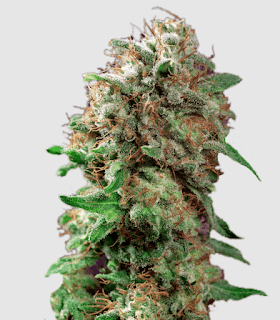Marijuana: Everything you need to know
One of the most widely used psychotropic herbs, marijuana has a wide range of positive and negative effects on the body. Far from any dogma that considers its use "diabolical" but also "akaki", we have gathered the main - so far - scientific evidence that demonstrates both its benefits and its negative effects.
What is marijuana and how does it work?
It is a plant that contains certain molecules called cannabinoids. The most popular of these is tetrahydrocannabinol, also known as THC. This is the main cause of the so-called "teat" caused by marijuana use.
In medicine, marijuana is used to treat a number of inflammations and gastrointestinal diseases, as well as to reduce stress. Its main use is for the treatment of cancer, but not as a primary drug but as an "adjuvant". To be precise, it is used in parallel with chemotherapy as it increases the appetite, thus preventing weight loss, which is a common result of chemotherapy.
Its effect on the brain involves two receptors, which are located on the cell walls. These two receptors, to be precise, have the same name as the plant: first cannabinoid receptor and second cannabinoid receptor (CB1 and CB2). The former is responsible for its immediate psychoactive effects, while the latter determines its long-term and anti-inflammatory effects.
Frequent use of marijuana can cause immunity to its active substance, which means that the user will need a higher dose to have the same effect.
What are the benefits of using it?
Most of the benefits of marijuana are mainly due to its psychoactive effects. Specifically, its use helps reduce stress by increasing the feeling of euphoria, reducing stress and the feeling that the user has "removed" from his environment.
At the same time, marijuana can help those who are underweight to increase the consumption of food, as it "opens" the appetite, acting on hormones that control it such as leptin and ghrelin. It also reduces nerve pain, thus helping people who have diseases associated with chronic pain.
And what are the disadvantages of using it?
Marijuana use causes a temporary state of reduced memory retention, which means that the user has difficulty remembering events that occurred in a short period of time. This effect, however, does not appear to cause long-term memory problems.
Also, those who use it frequently may experience a slight mental weakness - "blur", if they stop using it, but this feeling disappears after a few weeks, without, it is said, leaving long-term damage. The heavier use now and on a daily basis, can cause problems in mental focus, but also learning new things.
There is ample evidence that marijuana use may increase the risk of schizophrenia, especially if used from an early age, but there is evidence to suggest that its use does not lead to the disease. In general, however, the scientific community seems divided on this issue, as research is conflicting and this condition depends on a variety of factors.
Finally, its effect on the CB1 receptor increases blood flow to a specific area of the brain, which in turn increases the diastolic blood pressure, the second number on the sphygmomanometer. This means that marijuana use, when combined with stimulants, can increase the risk of heart disease, such as heart attack.
Is it addictive?
Marijuana is not as addictive as it is e.g. heroin, the cessation of use of which causes serious psychological and physical consequences. But it affects the centers of the brain that are associated with pleasure and creates a fairly tight "binding", which experts consider quite difficult to "break".
According to a document, the American Addiction Association considers marijuana addiction to be "a major health problem." Nevertheless, the problem is significantly smaller than other substances, legal or not.
For example, the Institute of Medicine, a medical arm of the National Academy of Sciences, reported in a 1999 study that 32% of smokers became addicted, as did 23% of heroin users, 17% of cocaine users and 15% those who consume alcohol. But only 9% of those who used cannabis became addicted to the substance.
"Although few marijuana users are addicted to it, there are some who are addicted. "But they seem to be clearly fewer than users of other substances - including nicotine and alcohol - and their dependence seems to be less severe than their dependence on other drugs."



> The long Term health risks of vape pens Northern Lights Feminized Seeds Gods Fruit Strain Feminized Seeds Bruce Banner #3 Feminized Seeds Bruce Banner Regular Seeds Coco Melon Regular Seeds Skunk #1 Regular Seeds Regular Seeds Combo Pack Autoflower sour diesel strain feminized seeds Autoflower Purple Kush Strain Feminized Seeds Big Bud Strain Autoflower Seeds Feminized Auto flower magnum strain feminized seeds Autoflower White Widow Strain Feminized Seeds Autoflower crystal meth strain Feminized Seeds Autoflower Northern Lights Strain Seeds Feminized Autoflower Chem Og Strain Feminized Seeds
ReplyDelete